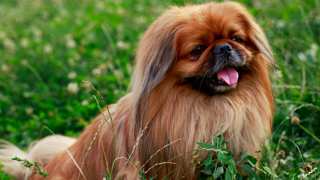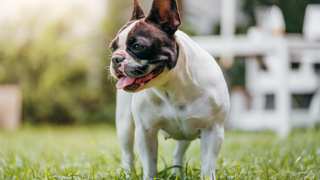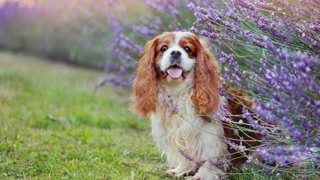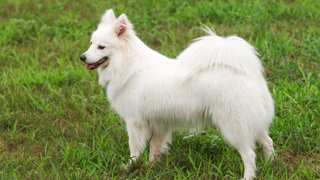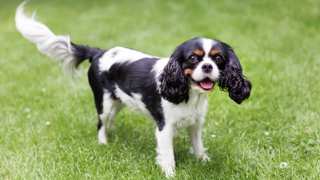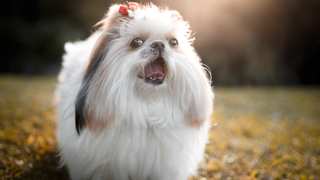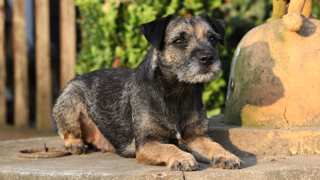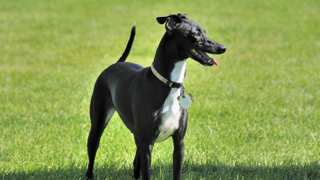The Pug diet, just as it is with all breeds, is essential to the dog's health and well-being. These dogs have greater tendency for obesity than most other breeds, so it's important that the Pug's food is high-quality and contains a lot of natural meat proteins (which inexpensive foods don't have). While many owners believe a diet consisting entirely of home-prepared food is best, for convenience's sake the best choice is feeding dry kibble (like Royal Canin) to a Pug.
In terms of portions, for puppies the "ounce-to-pound" ratio is a good guideline: feed a puppy one ounce of food for each pound it weighs, divided into three meals per day. After six months of age, an adult Pug should eat half an ounce per pound daily, with two meals each day once it fully matures. For more info, see this Pug feeding chart:
Dog AgeDog WeightFood TypeAmountFrequency8 Weeks3 lbsDry1 oz3x/day3 Months5 lbsDry2 oz3x/day6 Months10 lbsDry2 oz3x/day9 Months14 lbsDry4 oz2x/day12 Months+17 lbsDry5 oz2x/dayUnfortunately, the fat Pug is an all-too-common occurrence. These dogs can become overweight very easily, which can lead to digestive and additional breathing problems, not to mention a shorter lifespan. So it's important to give them plenty of exercise--and under no circumstances are they to be "free-fed" (leaving food in the dog's bowl all day, in other words, so the Pug can eat anytime it wants). It's highly recommended that you pick up the feeding dish 15-20 minutes after the Pug begins eating, and not put it down again until the next meal.
If you're concerned about your Pug getting fat, simply run a hand along the dog's side; if you can't feel any ribs, it's time for a diet. Decrease the Pug's dog food portions by one-fourth, and add another walk or an extra play session to its daily exercise schedule.

